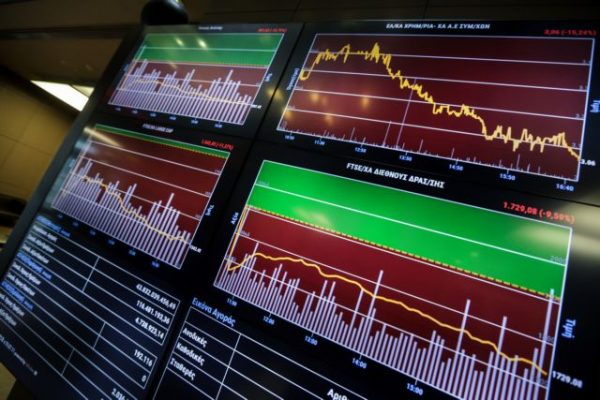
Of the approximately 800,000 small and medium enterprises (SMEs) operating in Greece, more than nine out of ten are very small enterprises and employ up to 10 employees, while only 672 large enterprises have more than 250 employees!
A Ministry of Finance bill will be tabled in order to attempt to change this landscape through the tax incentives it gives to small and medium enterprises but also freelancers such as lawyers, accountants, architects, engineers to merge and set up a new company in order to survive, grow and join the ” bright side “of the economy.
In addition, through mergers or acquisitions, they will have easier access to bank lending as they will show a stronger cash position.
The government hopes that the new corporate schemes that will be created will reduce tax evasion and especially bleeding in VAT, which is estimated at 6 billion euros per year.
The incentives focus on tax breaks, with the “heavy artillery” being a 30% tax deduction provided the partnership lasts at least 5 years.
What the market says
But how do small and medium-sized businesses respond to the government’s urging? Is there a ground for the project to proceed and not just stay on paper?
The president of the Piraeus Chamber of Commerce and Industry (EBEP), Vassilis Korkidis, speaking to “NEA” newspaper acknowledges that “the Greek economy, more than ever, needs to grow by increasing turnover and attracting investment,” but believes that there is a exaggeration in the management of the issue and the risks that lurk for small and medium-sized enterprises.
“They try to shake us up and warn us of future dangers, but also to give time to make important decisions about possible collaborations, before we are absorbed or closed under the pressure of competition from multinationals,” he notes.
He even argues that it is possible for young people to turn their disadvantages, such as lack of competitiveness, extroversion, earnings and tax capacity into advantages thanks to the flexibility they have in a digital, equal and friendly business environment that seems to be taking shape in our country.
For Vassilis Korkidis, the attitude of the financial staff and the banks will determine the increase or decrease of the SMEs.
“Dealing with systemic banks will play an important role in merging viable micro and small enterprises. The bet of empowerment and growth of Greek companies can not be won only with the mergers of micro-enterprises 0-9, but through the mobilization of resources and leverage of liquidity in the market “, he points out and adds that the small and medium-sized market” deserve and are entitled to receive the available resources of 12.7 billion euros from the lending and financial instruments, which will pass in the next period, through the banks to the Greek companies “.
What they suggest.
In order, according to Vassilis Korkidis, for the solution or choice of mergers, cooperatives and mergers, to bear fruit and produce results, the following must happen:
Mobilization of 1.5 billion euros for SMEs and leverage through resource banks 3.5 billion euros from the Recovery Fund.
Tempting tax breaks, with 50% reduced tax at 11% for a five-year period, instead of 15.5% for a three-year period.
More attractive incentives for synergies and “start up” synergies from the tax rate of 9% up to 10,000 euros in profits, with a subsidized reduction of insurance contributions and an investment premium.
Larger and longer-term arrangements in 240 installments of overdue tax debts and funds.
Review of the creation of a new legal form of company from the merger of “Urban Business Partnerships”.
The analysis of economic geography and priorities according to concentration, industry, activity, employment and debts is necessary so that it’s not debts that are combined, but sustainability and perspective.
The bet of the growth, empowerment and integration of the Greek SMEs to the levels of the respective European ones will be achieved only if we approach each merger or cooperation as a new investment.
When is income tax reduced by 30%
In the case of a business transformation under the following conditions:
- The total average turnover of the transformed enterprises, taking into account the previous three years, to be at least equal to 150% of the turnover of the enterprise with the largest among the transformed enterprises average turnover of the last three years.
- The turnover of the new company, ie the sum of the turnover of the last approved and published financial statements of the transformed companies, minus the transactions between them, to be equal to or greater than 450,000 euros.
In the case of cooperation of persons under the following conditions:
- In the event that the cooperation takes place under the establishment of a new or other legal entity, each of the cooperating persons contributes to the share capital of the legal entity to be established an amount equal to at least 10% of its share capital. The share capital of the new legal entity cannot be less than the amount of 150,000 euros.
- In case the cooperation is carried out under a contract or agreement on contract farming, each of the cooperating producers contributes quantities of products equal to at least 40% of the total quantity of similar or similar products of its production.
Latest News

PM Mitsotakis to Chair New Democracy’s Committee Meeting
Today’s meeting is seen as a crucial opportunity to halt internal disputes within ND and reaffirm unity within the party.

Trump Tariffs Jeopardize Growth: Piraeus Chamber of Commerce
The tariffs, aimed at reducing the U.S. trade deficit, are expected to have both direct and indirect effects on the European economy

EU Condemns Trump Tariffs, Prepares to Retaliate
As tensions escalate, the EU is expected to continue negotiations with Washington while preparing for potential economic retaliation.

The Likely Impact of Trump Tariffs on Europe and Greece
Trump tariffs are expected to negatively affect economic growth in the Eurozone while Greece's exports could take a hit.

Motor Oil Results for 2024: Adjusted EBITDA of 995 mln€; Proposed Dividend of 1.4€ Per Share
Adjusted EBITDA for 2024 was down 33% yoy. The adjusted profit after tax for 2024 stood at 504 million euros, a 43% decrease from the previous year

Cost of Living: Why Greece’s 3% Inflation Is Raising Alarm
Greece appears to be in a more difficult position when it comes to price hikes, just as we enter the era of Trump’s tariffs.

Fitch Ratings Upgrades the Four Greek Systemic Banks
NBG’s upgrade reflects the bank’s ongoing improvements in its credit profile, Fitch notes in its report, including strong profitability, a reduction in non-performing exposures (NPEs), and lower credit losses

Trump to Announce Sweeping New Tariffs Wednesday, Global Retaliation Expected
With Trump's announcement just hours away, markets, businesses, and foreign governments are bracing for the fallout of one of the most aggressive shifts in U.S. trade policy in decades.

Inflation in Greece at 3.1% in March, Eurostat Reports
Average inflation in the eurozone settled at 2.2%, compared to 2.3% in February

Greece’s Unemployment Rate Drops to 8.6% in February
Despite the overall decline, unemployment remains higher among women and young people.
























![ΕΛΣΤΑΤ: Αυξήθηκε η οικοδομική δραστηριότητα κατά 15,6% το Δεκέμβριο [πίνακες]](https://www.ot.gr/wp-content/uploads/2025/03/DSC9655-2-1024x569-1-90x90.jpg)

![Δασμοί Τραμπ: Οι επιπτώσεις στις ελληνικές εξαγωγές και στην ευρωπαϊκή οικονομία [γραφήματα]](https://www.ot.gr/wp-content/uploads/2023/10/ot_exagog_ISRAEL-600x352.png)















 Αριθμός Πιστοποίησης
Αριθμός Πιστοποίησης